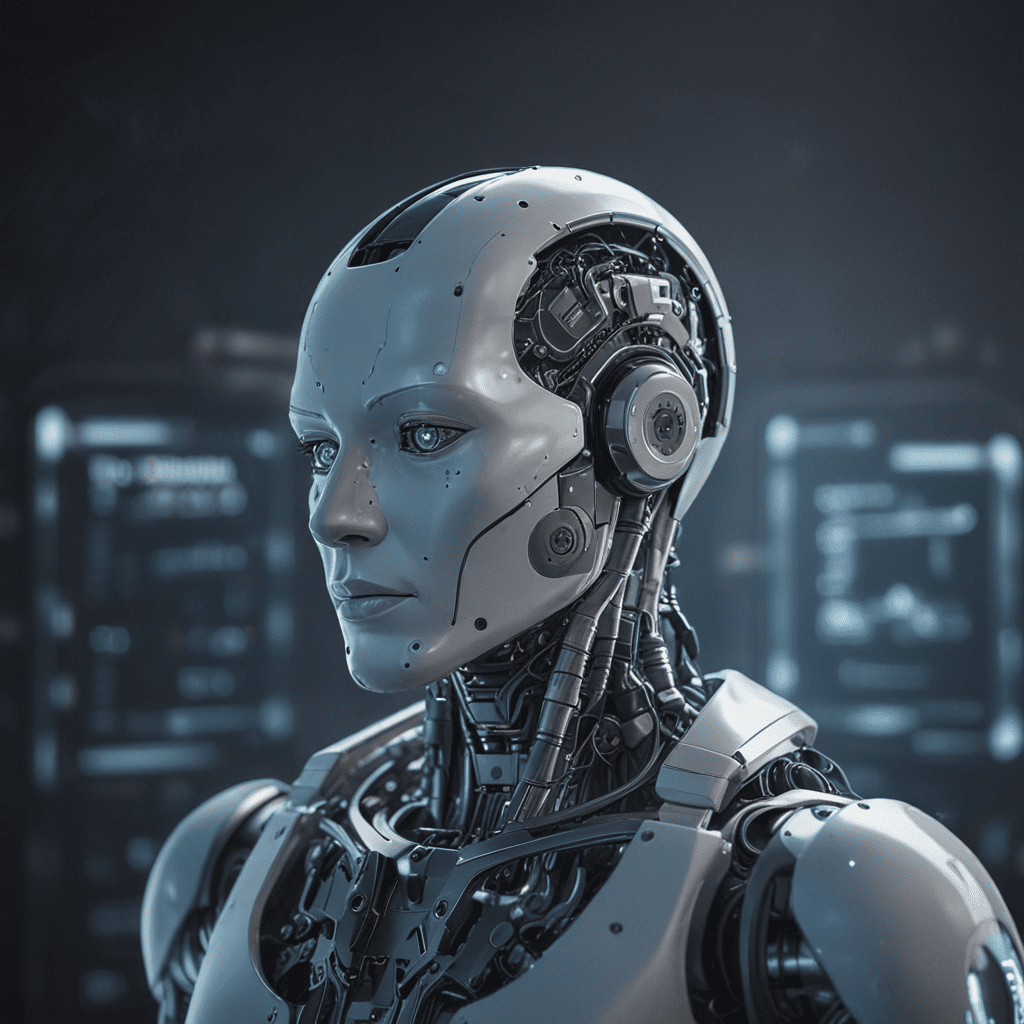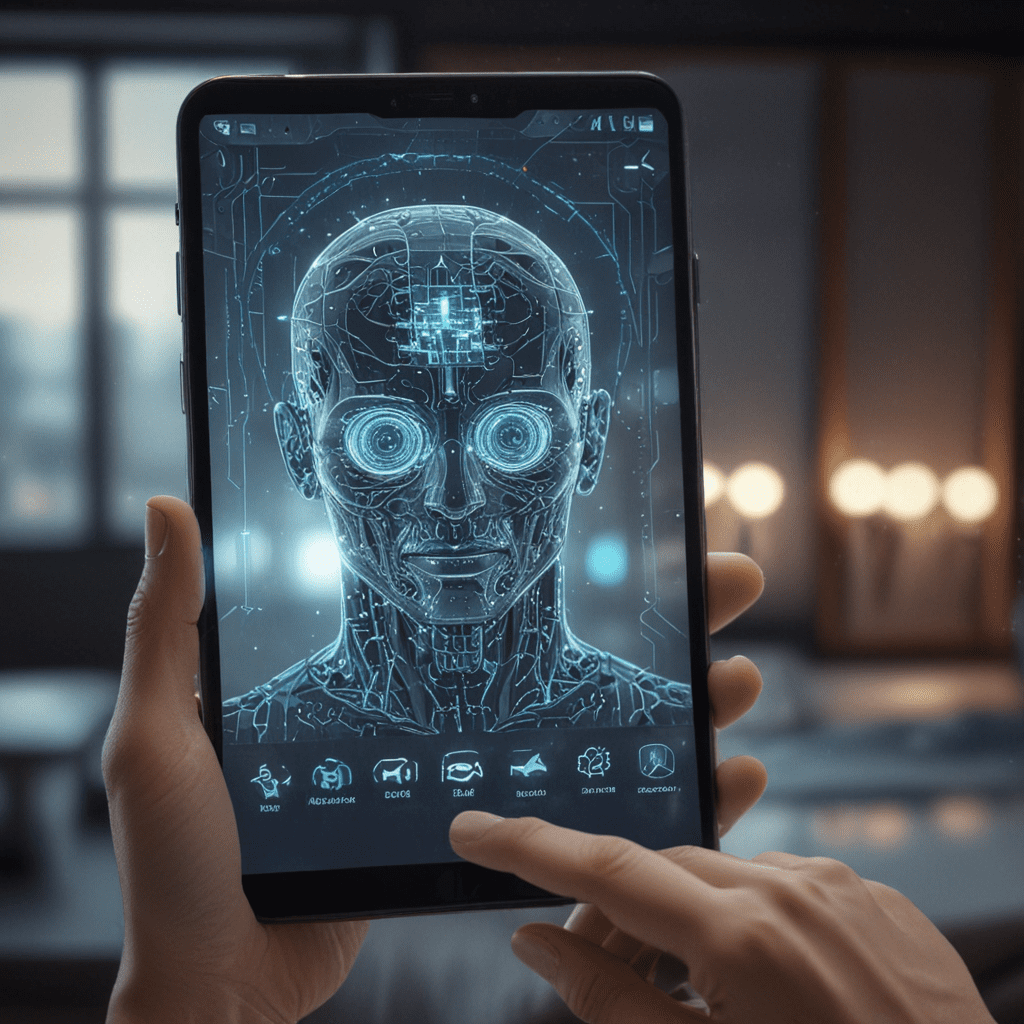
1. The Rise of Artificial Intelligence (AI) in Mobile App Development
Artificial Intelligence (AI) has emerged as a revolutionary force in the world of mobile app development, transforming the way apps are created, optimized, and personalized. AI algorithms enable apps to learn from user data, adapt to individual preferences, and provide tailored experiences that enhance user engagement.
2. The Role of AI in App Optimization and Personalization
AI plays a crucial role in optimizing mobile apps by analyzing user behavior and identifying areas for improvement. It can also personalize the app experience by recommending relevant content, features, and notifications based on each user's unique preferences and usage patterns. This level of personalization enhances user satisfaction and increases app retention rates.
3. AI-Driven Chatbots and Virtual Assistants in Mobile Apps
AI-powered chatbots and virtual assistants have become invaluable additions to mobile apps. They provide 24/7 support, answer user queries, and guide users through various app features. These AI-driven assistants enhance the user experience by offering instant and personalized assistance, reducing the need for manual customer service interventions.
4. Automation in Mobile App Development: Streamlining Processes
Automation has become an integral aspect of mobile app development, streamlining tasks and reducing manual labor. AI algorithms can automate repetitive tasks such as testing, code generation, and app distribution. This automation saves time and resources for developers, allowing them to focus on more complex tasks and enhance the overall app quality.
5. The Impact of Automation on App Development Efficiency
Automation has significantly improved the efficiency of mobile app development. By eliminating manual processes and automating repetitive tasks, developers can complete projects faster and with fewer errors. This efficiency boost enables developers to respond quickly to market demands, iterate on app features, and deliver high-quality apps within shorter timeframes.
6. AI and Automation in App Analytics and User Behavior Analysis
AI techniques empower mobile app developers to gather and analyze large amounts of user data, providing valuable insights into user behavior. By leveraging AI-powered analytics, developers can understand how users interact with their apps, what features they use the most, and areas where improvements can be made. This data-driven approach enables developers to make informed decisions, optimize the app experience, and enhance engagement.
7. The Future of AI and Automation in Mobile App Testing
AI and automation are revolutionizing mobile app testing. AI algorithms can automate repetitive testing tasks, such as UI testing, regression testing, and performance testing, significantly reducing the time and effort involved in manual testing. This automation frees up QA engineers to focus on more complex and exploratory testing, ensuring the delivery of high-quality, bug-free mobile apps.
8. The Ethical Implications of AI and Automation in Mobile Apps
While AI and automation offer tremendous benefits, it is essential to consider their ethical implications. Developers must prioritize data privacy, transparency, and user consent when implementing AI-powered features. They should ensure that user data is collected and used ethically, without compromising user trust or violating their rights.
9. Best Practices for Implementing AI and Automation in Mobile App Development
To successfully incorporate AI and automation into mobile app development, developers should adopt a strategic approach. It involves defining clear goals, selecting appropriate AI algorithms, ensuring data quality, and testing and monitoring the implemented AI models. By following these best practices, developers can maximize the benefits of AI and automation while mitigating potential risks.
10. The Future Trends and Innovations in AI and Automation for Mobile Apps
The future of AI and automation in mobile app development holds exciting possibilities. Advancements in machine learning, natural language processing, and computer vision will pave the way for even more personalized and intelligent mobile apps. These technologies will enable apps to adapt to individual user needs, provide real-time assistance, and create immersive and engaging user experiences.
FAQ
Q: How does AI enhance user experience in mobile apps?
A: AI algorithms personalize the app experience, offering tailored recommendations, content, and features based on user preferences and behavior.
Q: What are the benefits of automation in mobile app development?
A: Automation streamlines tasks, reduces errors, and improves development efficiency, enabling faster and higher-quality app delivery.
Q: How do AI-powered chatbots benefit mobile apps?
A: AI-driven chatbots provide instant and personalized assistance, enhance user satisfaction, and reduce the workload of customer support teams.
Q: Why is it important to consider the ethical implications of AI in mobile apps?
A: Developers must prioritize data privacy, user consent, and transparency to ensure ethical and responsible use of AI in mobile apps.
Q: What are the future trends in AI and automation for mobile apps?
A: Advancements in machine learning, natural language processing, and computer vision will lead to more personalized, intelligent, and engaging mobile apps.


